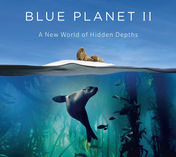Let Justice Flow
- Anna Vernon
- Oct 12, 2017
- 3 min read
Let justice flow. What a statement, but what does it actually mean? Sure, it sounds pretty cool; but how do we even begin to do that? My engagement with justice became so much more profound and motivated after I began to understand what injustice really is. Last year in a Just Lunch session, Just Love’s Southern co-ordinator, Hannah, linked injustice to relationships—we are made in the image of a relational God; we are made to be in right relationship with Him, others, the environment and with ourselves. Bryant Myers explains that injustice stems from a breakdown in these relationships. Once I started to think about that, justice became so much bigger, so much broader, than simply ‘poverty’ or ‘trafficking.’ It also became so much more understandable. Once you start to think about it, it makes so much sense.

Humans have a broken relationship with the environment; we have stewarded it really badly and we’re pretty apathetic about it. Our world is feeling the strain of that—we can see it in global warming, which can lead to drought or flooding. This then leads to farmers in developing countries not being able to cultivate crops, which can lead to food shortages. So the pleas we see on tv adverts about food crises in Africa, they could be stemming from our broken relationship with the environment?
What about our broken relationships with others; how does that play into issues of injustice? How about our clothing choices? Perhaps if we were pursuing whole and right relationships with others, no matter where they live, we might think twice before getting clothes from shops that place a low value on workers’ rights. This point hit home for me when someone used the term ‘global neighbour.’ Those who died in the Rana Plaza factory collapse were my global neighbours. If those people had been living next door to me, I would never have let them keep going to work, let alone bought the clothes that were made in the factory. I would have seen the state of the factory, heard their requests to be given rights. So will I continue to let distance allow me to exploit my global neighbour? Or will I pursue right relationships with them? There are no longer excuses for my ignorance.
How about falling out of right relationships with ourselves? Harder to see but still true. Not viewing ourselves the way Jesus sees us leads us to hold opinions about ourselves that just aren’t right—we seek affirmation and justification in all the wrong places. We are not the only ones who do it, people all over the world do. Trafficking is one of the most obvious injustices in the world—how, in the 21st Century, are people still being bought and sold as possessions?! But the thing is, people’s broken relationships with themselves and with God cause it to continue. People, not seeing themselves like Jesus sees them, strive for intimacy in places that aren’t wholesome, porn and prostitutes; and so the sex trade is continued.
This year at Just Love Exeter we want you to broaden your understanding of injustice, to find the strand that you want to fight for. Injustice can look like so much. It looks like people not having enough to eat and drink or having nowhere to live, it looks like loneliness, it looks like people buying and selling other people, it looks like abuse, it looks like people not being given fair rights. How are you going to impact it? Fighting injustice could be mentoring a youth who has no other positive role models, it could be cluing up on politics and engaging with your local council, it could be changing the way you shop for clothes and food, it could be serving the homeless breakfast and just showing them that someone really wants to know them. The options are endless and we want to know your thoughts.
If you'd like to find out more about the theology behind social justice, check out Just Love's 'Theology and Social Justice' resource available here.


















Comments